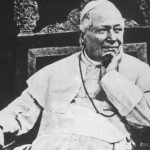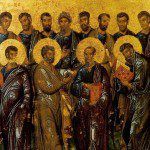I am in the painful process of reading Robert Zzzins’ book Romanism, and it would require the descriptive power of a Charles Dickens to express just how bad it is, how much a throwback to the wild histrionics of nineteenth-century anti-Catholic polemicists like Charles Spurgeon. The absurdly over-the-top subtitle of Mr. Zzzins’ book is “The Relentless Roman Catholic Assault on the Gospel of Jesus Christ.” What Mr. Zzzins really means by that is, “The relentless Roman Catholic assault on the doctrine of justification by faith alone.” To which I say, “Amen.” Except: That’s not the Gospel. It's not in the four gospels nor even the passage from Romans where Reformed apologists claim to find it. [Read more] Read more
















